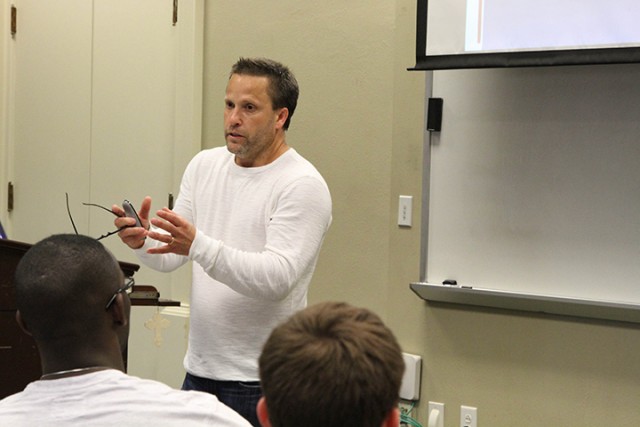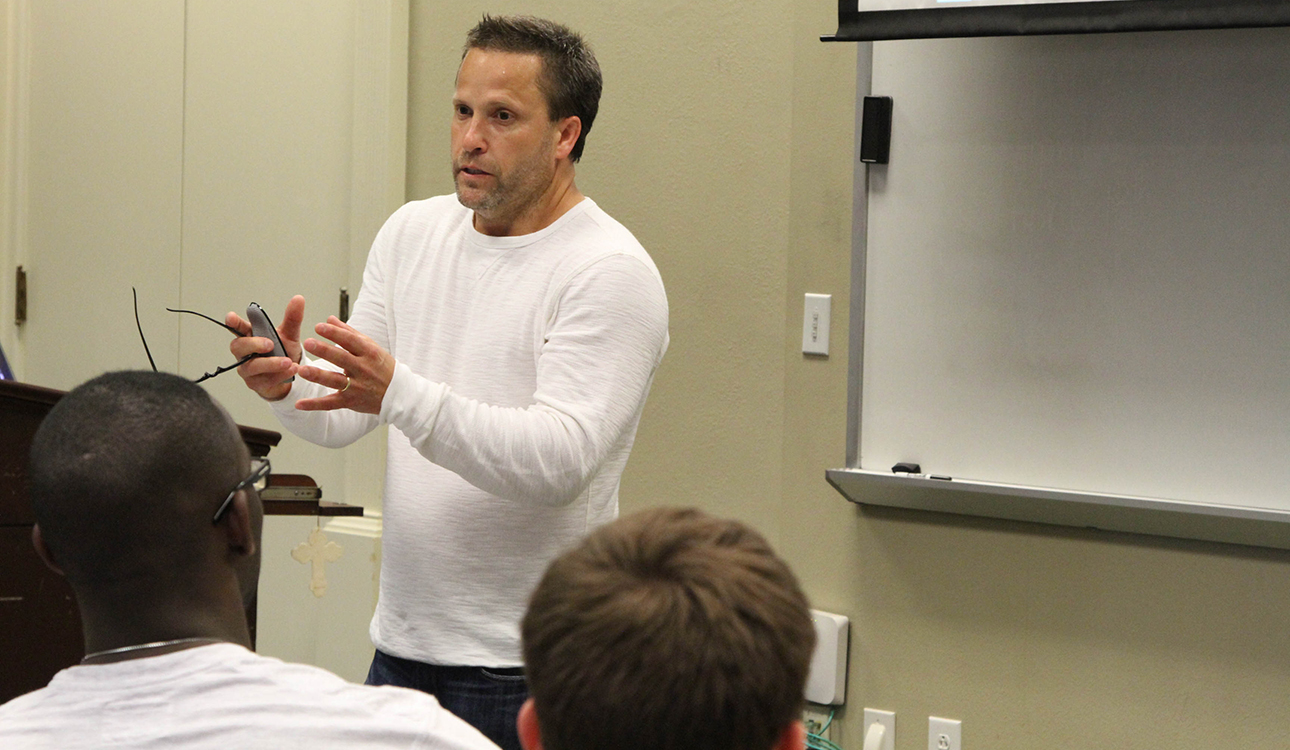
Hannah Hasseloff| Lariat Photographer
By Amanda Hayes
Reporter
When facing the reality of pain in the world, Dr. John Hardie, says more important than having intellectual answers is having God.
Baylor’s Honors College presented guest speaker Hardie to give his lecture titled “The ‘End’ of Theodicy: Karl Barth on Christian Ethics and the Problem of Evil” on Monday.
Hardie, pastor at Grace North Atlanta Church and scholar from Princeton Seminary, posed the existential question: How do we not give up on the goodness of God in the face of horrendous evils?
Dr. Junius Johnson, assistant professor of historical theology at Baylor, said Hardie was invited to speak at Chapel and Truett Seminary because this is an interesting topic that everyone is concerned about.
“It is helpful for students to learn from scholars outside of Baylor to hear their different perspectives,” Johnson said.
Theodicy is defined as the vindication of divine goodness and providence in view of the existence of evil. Hardie said this more simply means the act of justifying why God could still be a good God and permit suffering in the world.
Hardie presented his research on Reformed Swiss theologian Karl Barth, who is known as one of the great minds of Protestant theology in the 20th century.
Hardie said there are three types of theodicy: character building, natural law and free will. The first is the idea that God can take evil and use it in people’s lives to help them grow and mature. This is supported by the Scripture, “Count it all joy, my brothers, when you meet trials of various kinds, for you know that the testing of your faith produces steadfastness,” James 1: 2-3.
The second concept of natural law means that God created a universe that follows a natural order which runs on its own accord. Hardie gave the example of people enjoying water for drinking and swimming, but there is the possibility that they could also drown.
Lastly, Hardie said he resonates most with the idea of free will, the idea God created free creatures who have the choice to love others or commit evil acts.
The lecture discussed how the book of Job in the Bible does not give answers, but God gives himself. Hardie cited theologian Jurgen Moltmann, who said that any answers that begin with ‘because’ make a mockery of sufferers and blaspheme God. Moltmann said this does not mean Christians can remain silent about evil in the world, but rather exist in the question as an open wound in our lives.
Hardie said reality is almost always more complex and ambiguous than we want to make it, and God is revealed mystery that goes beyond human comprehension.
The theodicy of the cross, Hardie said, means that God loves us so much that he sent his Son to experience the world. While we typically suffer against our will, God took this pain upon himself freely on the cross. This does not provide a logical answer, but rather a description of what God has done for us.
The key to the cross is that God is not indifferent about the pain in the world, Hardie said, because he chose to enter the destruction for us.
We might not understand why evil takes place, Hardie said, but we have hope in God’s promise that one day He will put an end to this suffering.
“Pain touches everybody, and everybody has questions,” Hardie said. “This is when we decide what we believe and hold onto.”






